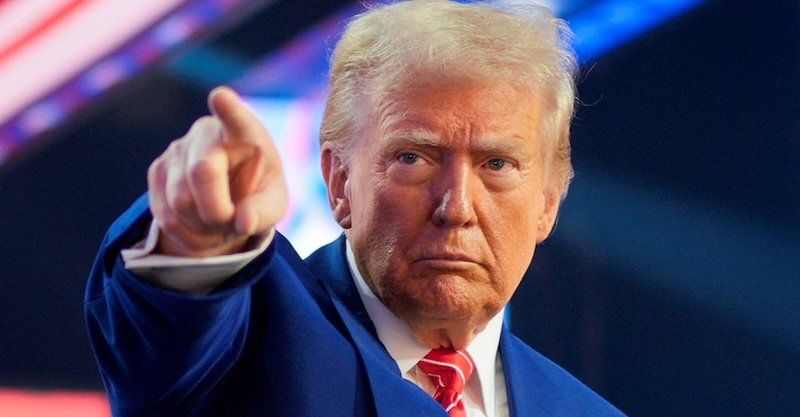Republicans in Congress have the power to "stop this tariff madness right now" and prevent a catastrophic trade war that will undermine the U.S. economy, conservative analyst Charles W. Cooke wrote for the National Review — all they have to do is find the courage to do it.
The tariffs on Canada and Mexico, previously delayed by thirty days after Trump cut "deals" with these countries, are now in full force, with the stock market in freefall, and major companies scrambling to minimize the damage as goods and raw materials are subject to new taxes at the border. It's a similar shock to the tariffs on China, which went into effect last month and left consumers stunned at new fees for shipping. The economic losses could be compounded as targeted countries prepare to hit back with their own tariffs.
"Congress can stop this right now. Literally right now. Today. This morning. Before lunch. In a matter of hours," wrote Cooke. "The Constitution gives absolute control over tariffs to Congress. As such, any power that the president enjoys must be delegated. With one bill — passed by veto-proof majorities — Congress could take back some (or all) of that power."
ALSO READ: 'Putin is the bad guy!' Tensions boil over on Fox & Friends over Trump's Ukraine moves
Trump's authority to unilaterally pass tariffs stems from a 1977 law called the International Emergency Economic Powers Act (IEEPA), a law which, as the name implies, is meant for emergency situations, but which gives the president the power to determine what constitutes an emergency.
"Congress can repeal it, amend it, or pass a separate law that supersedes it, and there’s nothing that anybody can do to stop it," said Cooke. "Such a law could exempt Canada and Mexico from its provisions, or make clear that other tariff deals involving those countries (like the one Trump signed in 2019) have precedence, or do anything else that Congress wants it to do, because — again! — Congress has plenary power over tariffs. Heck, if Congress passed a law that simply read, 'All delegation of the legislature’s Article I, Section 8 tariff powers is hereby rescinded,' that would immediately be the law of the land."
Congress is reluctant to do this, he noted, because "both parties like the imperial presidency" and anticipate using these powers when they are in charge. But this is "dumb" and "shortsighted," Cooke admonished, and it weakens the original purpose of the Constitution — and it's time lawmakers found their voice again.
"Its legality notwithstanding, there was arguably a time in history at which it made utilitarian sense for the president to be in charge of trade deals. But times change," wrote Cooke. "In a system such as ours, it is utterly bizarre that president enjoys this quasi-monarchical authority. If it wishes, Congress can remove it before you’ve even finished reading this post."
Leave a Comment
Related Post
